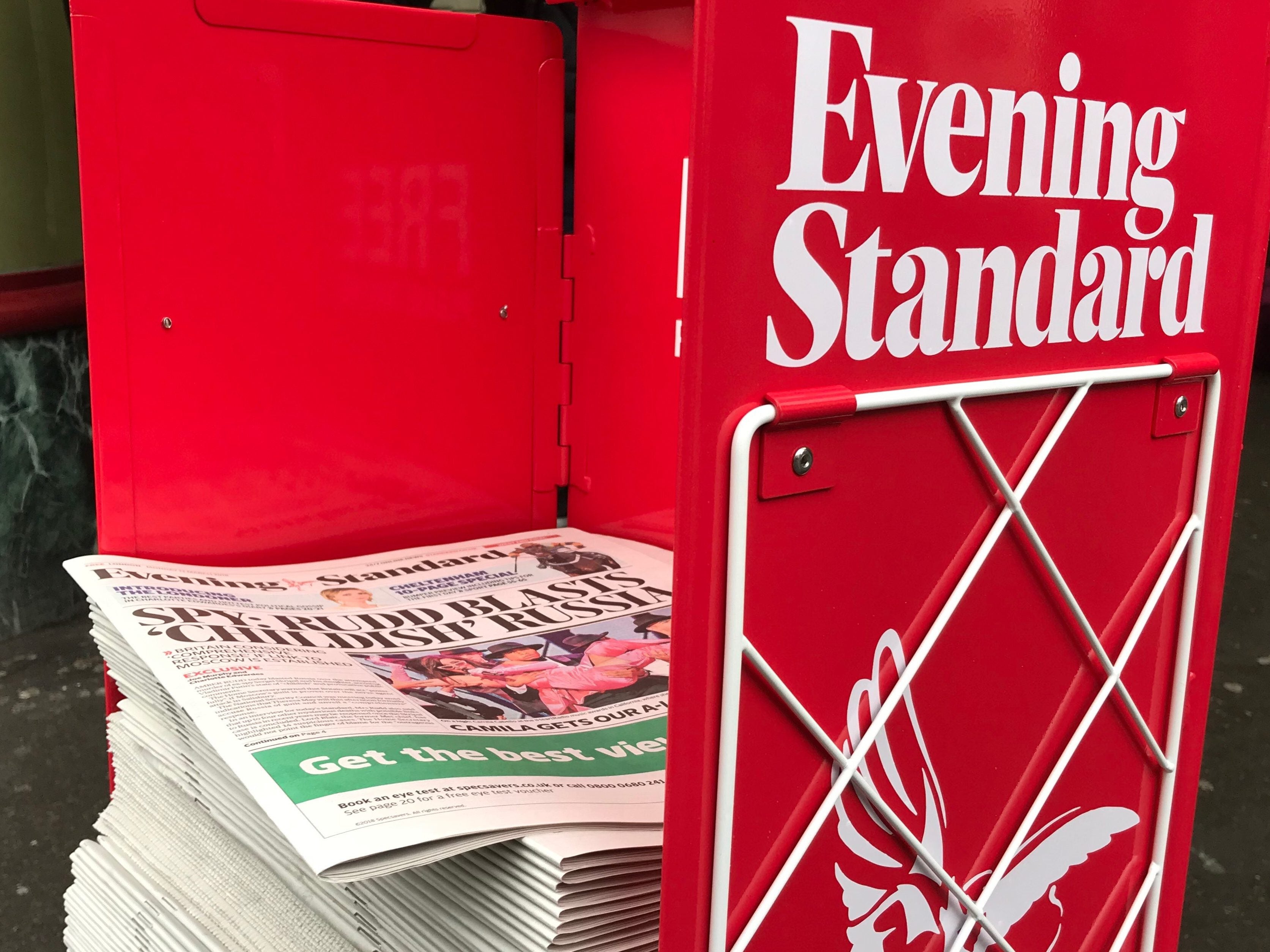
The Evening Standard has defended its editorial integrity as “beyond question” after claims emerged last night that it had sold “favourable” news coverage to advertisers including Google and Uber.
In an article on media platform Open Democracy, the newspaper was said to have agreed a £3m deal with six companies promising them “’money-can’t-buy’ positive news and ‘favourable’ comment coverage”.
The piece suggests editor George Osborne was breaching the traditional divide between editorial and commercial with the deal, leaving readers “unable to differentiate between ‘news’ that is paid-for and other commercially-branded content”.
The website quotes an unnamed “senior executive” from Starbucks who said the coffee giant had walked away from the proposal after a meeting at the Standard’s offices in west London.
Those understood to have paid to sponsor the London 2020 campaigns project, which has yet to launch, include web giant Google and technology/taxi company Uber.
On a slide, said to have been presented at the meeting, pictured in the Open Democracy article, sponsors are told “we expect every campaign to generate numerous news stories, comment pieces…”.
They are also offered, among other things, “eight-pages of in-depth material”, a “standalone microsite”, a “bespoke social media strategy”, “debates” and “exhibitions”, and “native and advertorial content” as well as “display ads”.
Shadow Culture Secretary Tom Watson said in a tweet that the deal was a case of “cash for column inches” and amounted to “a corporate fake news factory on a grand scale”.
He added: “If even vaguely true, George Osborne’s position as a credible editor is under serious question today.”
Press Gazette understands the Standard considers the Open Democracy article to be “wrong” and “inaccurate”.
In a statement, the paper’s owner, ESI Media, said: “The Evening Standard’s editorial integrity and independence is always at the heart of everything we do and is beyond question. That’s why we have such a big and loyal readership.
“No commercial agreement would ever include ‘favourable’ news coverage. Like all British newspapers, the Evening Standard has valued commercial partners and works with them on specific campaigns for the benefit of our readers.
“Indeed, editorial independence is and remains guaranteed in the contracts we sign.”
The London 2020 project is understood to be a series covering key topics facing London, such as air pollution, communications and the environment.
Under UK advertising standards codes, non-broadcast outlets must ensure all marketing communications are “obviously identifiable”.
If the Standard were to make advertising content indistinguishable from independent news, it would be in breach of media advertising rules as outlined in the Committee of Advertising Practice (CAP) Code.
Section 2.4 of the code states: “Marketers and publishers must make clear that advertorials are marketing communications; for example, by heading them ‘advertisement feature’.”
Advice from the CAP on native advertising, also known as sponsored content, is that it must “not appear to be editorial content when it is not”. Complaints along these lines have previously been upheld by the UK’s independent advertising regulator the Advertising Standards Authority.
Jon O’Donnell, group commercial director at ESI Media, told The Drum: “[London 2020] will, as with all commercial content, be clearly identifiable as such.
“Under no circumstances have these clients been guaranteed news coverage for their own ends, nor would they ever be. Properly signposted commercial content within an editorial product is an accepted part of the news industry and is nothing new for publishers.
“The Evening Standard has a long history in producing important and award-winning campaigns, and we are excited about the prospects that London 2020 will bring to the brand, it’s partners and the people of London.”
A Starbucks spokesperson said: “We met with ESI and opted not to move forward with the project.”
Press Gazette understands the company regularly meets with publishers and that its decision to walk away from the London 2020 deal was based on commercial concerns over return on investment.
As the Starbucks source quoted in the Open Democracy story is unnamed, they cannot be confirmed as an employee of the company.
Uber declined to comment. Google has yet to respond to Press Gazette’s request for comment.
Email pged@pressgazette.co.uk to point out mistakes, provide story tips or send in a letter for publication on our "Letters Page" blog

